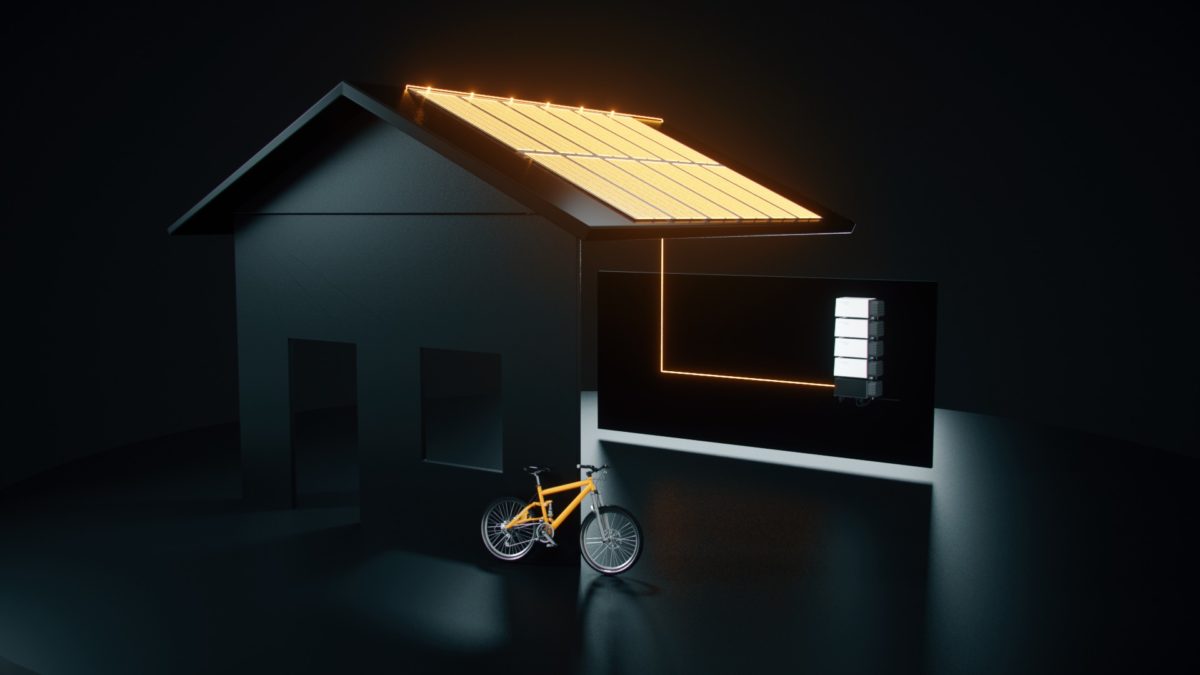At a media event, held yesterday in the idyllic village of Eichwalde, located on the outskirts of Berlin, representatives of politics and industry inaugurated the milestone energy storage system.
The event on Tuesday was attended by parliamentary state secretary of the Federal Ministry of economy, Thomas Bareiß. While he has not been a big supporter of solar PV, he says he has found some interest in storage.
Also attending the event were Carsten Körnig, Managing Director of BSW-Solar and Detlef Neuhaus, CEO of Germany-based solar and storage company, Solarwatt, which added its “My Reserve” solution to an existing residential rooftop PV system in Eichwalde.
“After Germany has lost its global leadership position in PV-modules to Asian manufacturers, a second chance is opening,” said Neuhaus. Addressing politics, he demanded that “there should be no regulatory obstacles to this growing segment; otherwise jobs could be lost. Today, the PV industry creates more jobs than the lignite and hard coal industries combined.”
Talking at the event, Bareiß highlighted “the milestone for the energy transition.” He underlined the drastically decreasing costs for battery storage in the last years – which have fallen by more than 50% since 2013.
This has helped enable a financially viable energy transition. “Storage systems are already supporting the grids and will only gain relevance in the future,” the parliamentary secretary added. Reportedly, storage systems are already expanding the flexibility options for smart load management. “Flexible solutions like this help to retain security of supply in Germany, also in the future,” Bareiß said.
Agreeing, BSW-Solar's Körnig said, “If the government pulls through with the energy transition consistently, storage systems will soon be a widespread standard.” Already, he said, more than half of new PV installations add storage.
Körnig lauded the broad willingness for investment by homeowners, as well as the drive for innovation by the industry. “With this momentum, we will celebrate the next milestone of 200,000 storage systems in two years, already,” he said.
Neuhaus further highlighted how this milestone speaks in favor of people's support for clean energy. Many people are looking to generate their own electricity and realize their energy transition, rather than waiting for the government to do so. “The economic potential storage technology has for Germany, should finally be fully realized,” he concluded.
BSW added that PV storage systems help to stabilize the local distribution grids. Furthermore, so-called idle power storage systems could support local grids around the clock. This would reduce the necessity for grid infrastructure refurbishments, especially regarding EV charging. A cluster of connected storage systems could also take on the role of traditional grids when it comes to control energy.
This content is protected by copyright and may not be reused. If you want to cooperate with us and would like to reuse some of our content, please contact: editors@pv-magazine.com.




3 comments
By submitting this form you agree to pv magazine using your data for the purposes of publishing your comment.
Your personal data will only be disclosed or otherwise transmitted to third parties for the purposes of spam filtering or if this is necessary for technical maintenance of the website. Any other transfer to third parties will not take place unless this is justified on the basis of applicable data protection regulations or if pv magazine is legally obliged to do so.
You may revoke this consent at any time with effect for the future, in which case your personal data will be deleted immediately. Otherwise, your data will be deleted if pv magazine has processed your request or the purpose of data storage is fulfilled.
Further information on data privacy can be found in our Data Protection Policy.